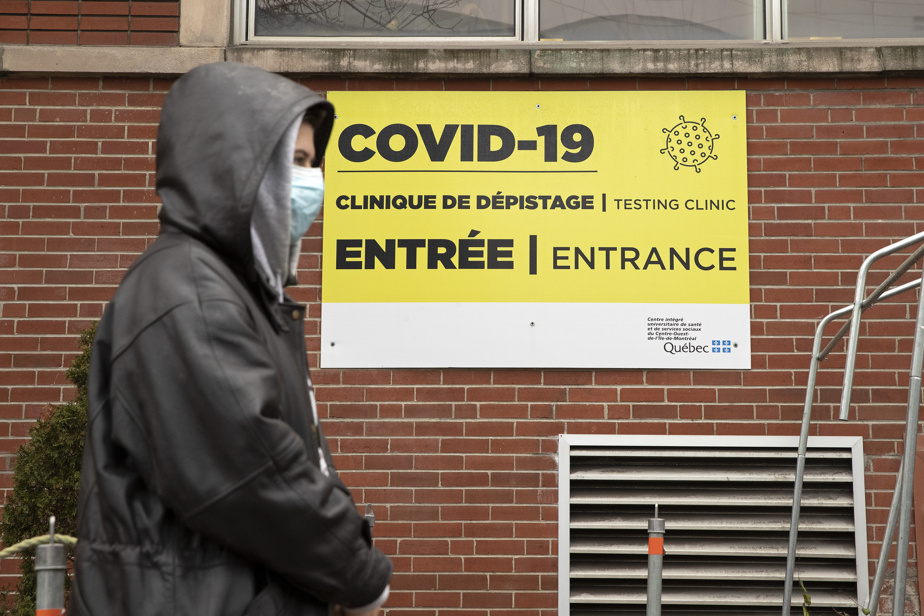(Quebec) An academic study concludes that the opposition parties in Quebec were unable to fully play their role during the pandemic, particularly the first wave in 2020.
This echoes criticism heard during the COVID-19 crisis, when citizens and activists blamed opposition parties on social media for not attacking the government more harshly over its early handling of the pandemic. .
It would be one of the first studies which, after analyzing hundreds of interventions, demonstrate with quantitative and qualitative data that the opposition had to change strategy.
The researchers conclude that the ability of opposition parties to monitor government action has been “clearly undermined”.
Both the Liberal Party (PLQ), Québec solidaire (QS) and the Parti québécois (PQ) have therefore renounced personal criticism and attacks and opted for the formulation of proposals, indicates the article in English published in the scientific journal Journal of Legislative Studies.
They made up to almost seven times more interventions with proposals than critical interventions, compared to the level before the pandemic.
This shift from confrontational antagonism to a propositional approach has been “quite spectacular,” the authors opine.
During interviews conducted by the researchers, elected officials from these parties confided that voters did not accept the criticisms they leveled at the government and that they therefore had to change their tone.
“We have to learn to temper what we say, but also the scope of what we say […] all questions can be asked, but there is a way to do it and a tone to be preferred,” admitted a opposition parliamentarians interviewed by the researchers. All elected officials were interviewed on condition of anonymity.
In an interview with La Presse Canadienne, one of the authors of the study, Jeanne Milot-Poulin, confirmed that the work of opposition elected officials was much more complicated during the pandemic, according to the testimonies collected.
“I wouldn’t go so far as to say based on our article that the oppositions have been muzzled, but it is certain that the work has been very complicated by the pandemic”, she nuanced.
“In a crisis situation, in Quebec – and particularly in Quebec – we tend to rally together in society, therefore to be in solidarity with our Prime Minister,” said an elected official in an interview with the researchers.
“The first wave was really a state of grace in Quebec – everyone united,” commented a parliamentarian.
Even citizens normally more likely to support one of the opposition parties became more attentive to the government’s message and therefore less receptive to the opposition, we can read.
In the first wave of the pandemic, academics observed “a clear shift” in opposition communication strategies, it read. Opposition politicians have generally tended to opt for a “proposal approach” rather than a “frontal critique” of government action.
Ms. Milot-Poulin evokes a rallying effect, as in times of international crisis, of war, but this time in times of pandemic.
“The population will often have a reflex of solidarity towards the executive, towards the government. In such a context, an opposition party must be a little more careful not to criticize the government too directly because that could backfire, in relation to the reflex of solidarity of the citizens. »
One of the elected officials admitted that the role of the opposition was thankless: blamed for criticizing the government, or blamed for not criticizing it enough.
And the room for maneuver was even more limited in this particular crisis, due to the virulence of the conspiratorial discourse. Because the criticisms raised should not be associated with “conspiratorial criticism either”, notes another parliamentarian interviewed.
The researchers conclude that “the ability of opposition parties to monitor government action and contribute to the political process was clearly undermined by the sudden intolerance of criticism during the early part of the pandemic and by the increased centralization of decision making “.
In addition, the academics tested another question, namely whether opposition formations have abandoned personal attacks on ministers or the government, in favor of interventions that are more focused on public policies.
They noticed that in Parliament, there was no significant difference between before and during the pandemic. But in the media, during the first wave, indeed, spokespersons eased off: their arrows were aimed less at ministers.
Finally, one of the researchers’ hypotheses did not come true. They checked whether the pandemic had a different effect on party strategies depending on whether they intervened in the media or rather in parliament, but the data did not allow them to come to this conclusion.
No less than 657 parliamentary interventions, either statements or questions, as well as 728 interventions in the media were analyzed, between January 2019 and December 2020. This made it possible to compare with a pre-pandemic sample, from January 2019 to March 2020.
Of the 657 interventions carried out, 163 (24.8%) were made after the declaration of the state of emergency.
Similarly, of the 728 interventions in the media, 303 (41.6%) were made after the announcement of the state of emergency.
The interventions selected were those of the spokespersons for Education, Health and Public Safety, who were the most solicited during the pandemic.
In addition to Ms. Milot-Poulin, the study was conducted by Lydia Laflamme, Jeanne Desrosiers, Cédrik Verreault, Carolane Fillion, Nicolas Patenaude, as well as Professor Marc-André Bodet.

